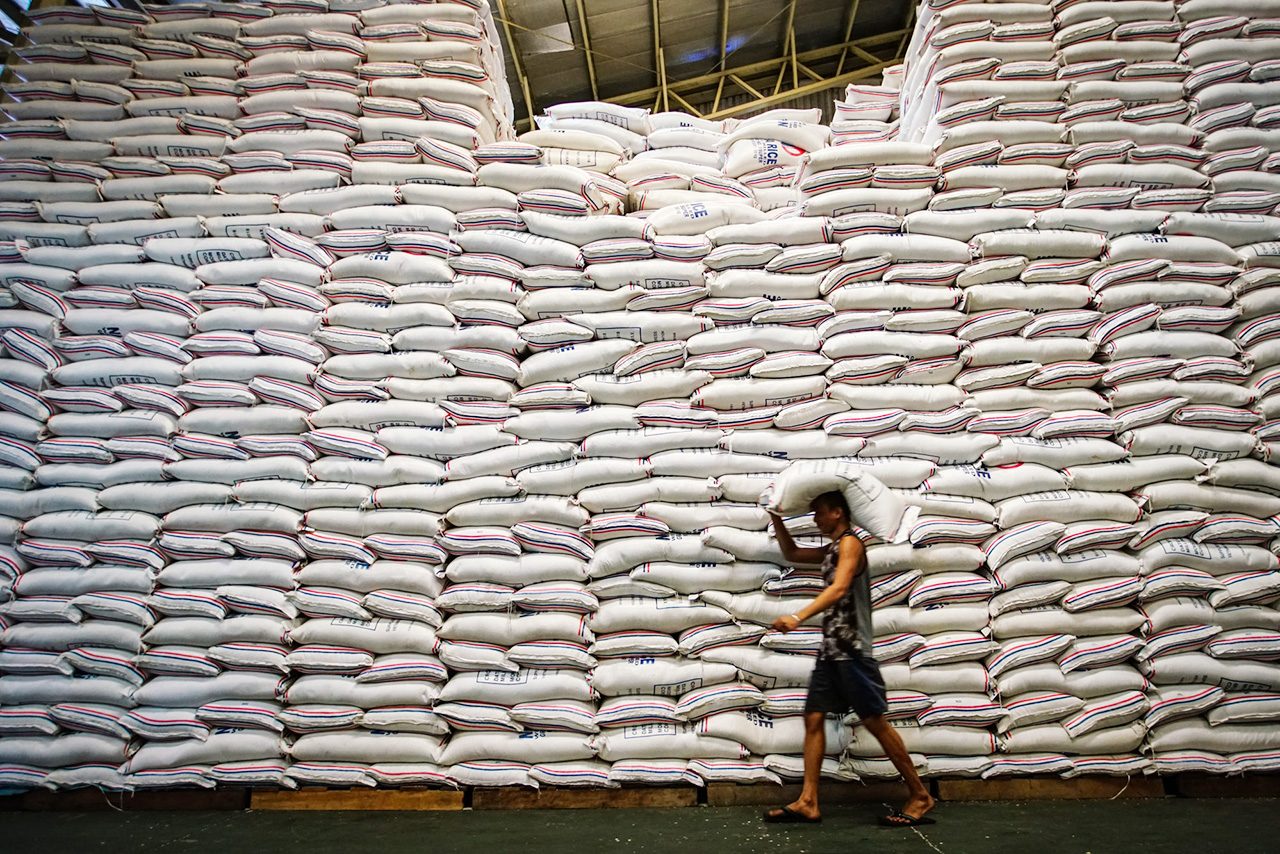SUMMARY
This is AI generated summarization, which may have errors. For context, always refer to the full article.

MANILA, Philippines – The implementing rules and regulations (IRR) of Republic Act No. 11203 or the rice tariffication law was amended Tuesday, March 5, taking into consideration the proposals of rice industry stakeholders.
Agriculture Secretary Emmanuel Piñol told reporters on Wednesday, March 6, that they will be implementing more changes in the National Food Authority (NFA) to accommodate safeguards the stakeholders were asking for.
These changes were approved during the NFA Council meeting on Tuesday.
The IRR will be passed to the secretaries of the Department of Agriculture (DA), the Department of Trade and Industry, and the National Economic and Development Authority for signing.
“It (draft IRR) had amendments and improvements, and I’m happy to report to the farmers and other industry stakeholders that the government listened to some of their proposals,” Piñol said in Filipino. (READ: FAST FACTS: How government will implement rice tariffication)
“They had asked, what if the NFA has bought all the needed buffer stock? ‘Will we be at a financial disadvantage?’ The answer is no because we will be implementing something we call rolling buffer stocking.”
This means that as soon as the NFA has enough buffer stock for 30 days, the state grains agency will have to release this into the market and then procure palay from farmers again. This scheme of buying from farmers will occur year-round.
Due to the rice tariffication law, industry stakeholders also feared that there would be no policing of rice prices and there would be loss of jobs. (READ: Butterfly effect: How rice tariffication bill affects everyone)
The job losses would stem from the NFA being limited to a buffer stocking agency. But Piñol said some employees will be transferred to the Bureau of Plant Industry (BPI) to handle the sanitary and phytosanitary permits needed for importation.
“The BPI and DA will need a few more warm bodies because the food safety function will be new to the BPI,” he added.
More expensive NFA rice?
Piñol had announced the passage of the IRR earlier in a Facebook post, where the NFA will now buy local palay or unhusked rice at P20.70 per kilogram (kg) from the previous price of P17 per kg.
The agriculture chief also reiterated that the P27 per kg rice will only last until August, when current stocks of imported rice will run out.
But due to the increase in the buying price, Piñol said the NFA Council will have to recompute the new selling price, which will have to take effect by August.
“Since our local palay procurement may be more expensive than imported rice, we will have to recompute it [not] because the NFA is looking for profit, but to perform its mandate that there should be buffer stock of rice during times of calamities,” he added.
“We will have to base it on the procurement price. As of the moment, we’re still studying it.”
Easier access to RCEF
Another amendment to the IRR was the removal of collateral for farmers who want to avail of the P1-billion credit facility which will come from the P10-billion Rice Competitiveness Enhancement Fund (RCEF).
To also make it easier for farmers to pay back their loans, Piñol said the interest rate will be set at one-third of the prevailing Bangko Sentral ng Pilipinas rates.
Aside from this, the government will now give farm equipment and rice seeds for free. Farmers’ associations will be prioritized for this, rather than local government units. – Rappler.com
Add a comment
How does this make you feel?
There are no comments yet. Add your comment to start the conversation.